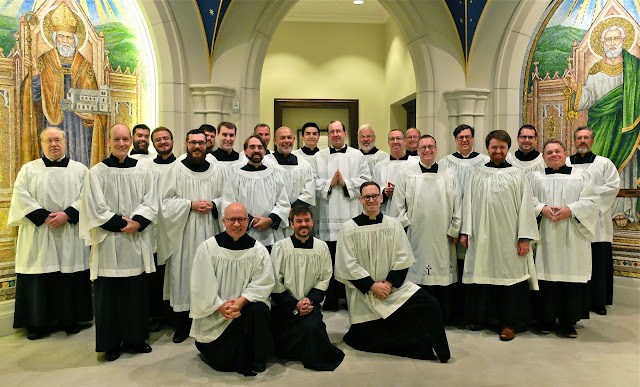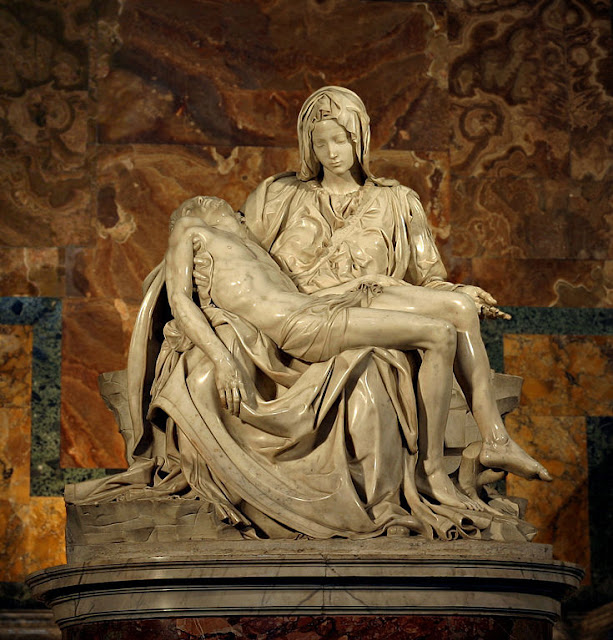The Workings of Wisdom
 |
| Nearest Neighbor Model | Albrecht |
The image above, a visual representation of the interconnectedness of the galaxies according to spatial relation, affirms what is still for explorers an exciting mystery to observe and search into. The stars, the galaxies, are not detached elements in an ever expanding universe, some believe.
The apparent interconnectedness of these powerful entities in such a vast cosmic array elicits wonder that Catholics can readily acknowledge as the hand of God manifesting His elegant design. One might be forgiven for seeing in such a web a semantic network, a network of meaning.
If any of you lacks wisdom, let him ask God, who gives to all men generously and without reproaching, and it will be given him. - St. James 1:5
What are the workings of wisdom?
Compendium of the Catechism of the Catholic Church54. How did God create the universe?295-301317-320
God created the universe freely with wisdom and love. The world is not the result of any necessity, nor of blind fate, nor of chance. God created “out of nothing” (ex nihilo) (2 Maccabees 7:28) a world which is ordered and good and which he infinitely transcends. God preserves his creation in being and sustains it, giving it the capacity to act and leading it toward its fulfillment through his Son and the Holy Spirit.
God, in His infinitum wisdom, loved the universe into being. Love is energy, an energy of a kind that, when of a magnitude demonstrated by the Word Incarnate, Jesus, can and does effect events beyond what we mortals can conceive.
The creative love of God is the answer to the question of why there is something rather than nothing. - paraphrase of a comment by Fr. Raymond J. De Souza, Physics vs. metaphysics, knowledge vs. wisdom
God's creative act is a manifestation of His love. He has placed us in this universe to discover Him. Pentecost is consummation, of His pouring out the Holy Ghost, and the re-creation of man. God's creative self-giving resulted in the birth of the Church and the renewal of man in the Second Adam, Jesus Christ. God sustains us with His Flesh and Blood, the Body and Blood of Christ, the Holy Eucharist, which we Catholics acknowledge is the source and summit of the Christian life.
The virtue of faith is a supernatural virtue that enables us to assent confidently to all that God has revealed.
To seek the greatest good is to live well, and to live well is nothing other than to love God with the whole heart, the whole soul, and the whole mind: It is therefore obvious that this love must be kept whole and uncorrupt, that is temperance; it should not be overcome with difficulties, that is fortitude, it must not be subservient to anything else, that is justice; it must discriminate among things so as not to be deceived by falsity or fraud, that is prudence. - Saint Augustine of Hippo
And Saint Thomas?
Article 1. Whether wisdom should be reckoned among the gifts of the Holy Ghost?
Objection 1. It would seem that wisdom ought not to be reckoned among the gifts of the Holy Ghost. For the gifts are more perfect than the virtues, as stated above (I-II:68:8). Now virtue is directed to the good alone, wherefore Augustine says (De Lib. Arb. ii, 19) that "no man makes bad use of the virtues." Much more therefore are the gifts of the Holy Ghost directed to the good alone. But wisdom is directed to evil also, for it is written (James 3:15) that a certain wisdom is "earthly, sensual, devilish." Therefore wisdom should not be reckoned among the gifts of the Holy Ghost.
Objection 2. Further, according to Augustine (De Trin. xii, 14) "wisdom is the knowledge of Divine things." Now that knowledge of Divine things which man can acquire by his natural endowments, belongs to the wisdom which is an intellectual virtue, while the supernatural knowledge of Divine things belongs to faith which is a theological virtue, as explained above (II-II:4:5; I-II:62:3). Therefore wisdom should be called a virtue rather than a gift.
Objection 3. Further, it is written (Job 28:28): "Behold the fear of the Lord, that is wisdom, and to depart from evil, that is understanding." And in this passage according to the rendering of the Septuagint which Augustine follows (De Trin. xii, 14; xiv, 1) we read: "Behold piety, that is wisdom." Now both fear and piety are gifts of the Holy Ghost. Therefore wisdom should not be reckoned among the gifts of the Holy Ghost, as though it were distinct from the others.
On the contrary, It is written (Isaiah 11:2): "The Spirit of the Lord shall rest upon Him; the spirit of wisdom and of understanding."
I answer that, according to the Philosopher (Metaph. i: 2), it belongs to wisdom to consider the highest cause. By means of that cause we are able to form a most certain judgment about other causes, and according thereto all things should be set in order. Now the highest cause may be understood in two ways, either simply or in some particular genus. Accordingly he that knows the highest cause in any particular genus, and by its means is able to judge and set in order all the things that belong to that genus, is said to be wise in that genus, for instance in medicine or architecture, according to 1 Corinthians 3:10: "As a wise architect, I have laid a foundation." On the other hand, he who knows the cause that is simply the highest, which is God, is said to be wise simply, because he is able to judge and set in order all things according to Divine rules.
Now man obtains this judgment through the Holy Ghost, according to 1 Corinthians 2:15: "The spiritual man judgeth all things," because as stated in the same chapter (1 Corinthians 2:10), "the Spirit searcheth all things, yea the deep things of God." Wherefore it is evident that wisdom is a gift of the Holy Ghost.
Reply to Objection 1. A thing is said to be good in two senses: first in the sense that it is truly good and simply perfect, secondly, by a kind of likeness, being perfect in wickedness; thus we speak of a good or a perfect thief, as the Philosopher observes (Metaph. v, text. 21). And just as with regard to those things which are truly good, we find a highest cause, namely the sovereign good which is the last end, by knowing which, man is said to be truly wise, so too in evil things something is to be found to which all others are to be referred as to a last end, by knowing which, man is said to be wise unto evil doing, according to Jeremiah 4:22: "They are wise to do evils, but to do good they have no knowledge." Now whoever turns away from his due end, must needs fix on some undue end, since every agent acts for an end. Wherefore, if he fixes his end in external earthly things, his "wisdom" is called "earthly," if in the goods of the body, it is called "sensual wisdom," if in some excellence, it is called "devilish wisdom" because it imitates the devil's pride, of which it is written (Job 41:25): "He is king over all the children of pride."
Reply to Objection 2. The wisdom which is called a gift of the Holy Ghost, differs from that which is an acquired intellectual virtue, for the latter is attained by human effort, whereas the former is "descending from above" (James 3:15). On like manner it differs from faith, since faith assents to the Divine truth in itself, whereas it belongs to the gift of wisdom to judge according to the Divine truth. Hence the gift of wisdom presupposes faith, because "a man judges well what he knows" (Ethic. i, 3).
Reply to Objection 3. Just as piety which pertains to the worship of God is a manifestation of faith, in so far as we make profession of faith by worshipping God, so too, piety manifests wisdom. For this reason piety is stated to be wisdom, and so is fear, for the same reason, because if a man fear and worship God, this shows that he has a right judgment about Divine things.
.jpg)





Comments
Post a Comment
Your comments will be appreciated and posted if 1) they are on topic and 2) preserve decorum.
Stand by your word.